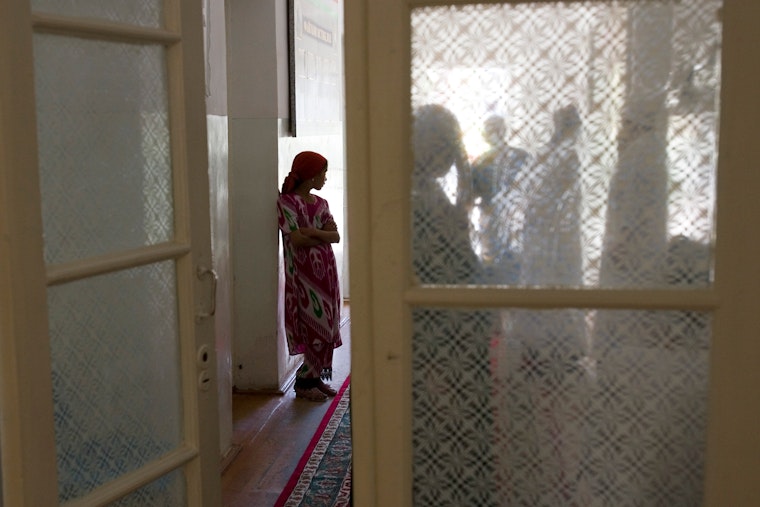
What is the global gag rule?
The global gag rule prohibits foreign nongovernmental organizations (NGOs) who receive U.S. global health assistance from providing legal abortion services or referrals, while also barring advocacy for abortion law reform—even if it’s done with the NGO’s own, non-U.S. funds. The policy allows access to abortion only in cases of rape, incest, or when a woman’s life is at risk.
President Ronald Reagan first enacted the global gag rule—also known as the Mexico City Policy—in 1984. Every president since Reagan has decided whether to enact or revoke the policy, making NGO funding vulnerable to political changes happening in the United States. The rule forces organizations to choose whether to provide comprehensive sexual and reproductive health care and education without U.S. funding, or comply with the policy in order to continue accepting U.S. funds.
Who does the global gag rule impact?
- Women—especially poor women—will suffer. Pregnant people will suffer from disruptions in reproductive health services. The policy causes more unintended pregnancies, higher rates of maternal mortality, and an increase in unsafe abortions. Multiple studies have shown that the global gag rule has not decreased rates of abortions but instead has increased the number of unsafe abortions.
- Nearly 50 percent of global HIV and AIDS funding comes from the U.S. government. Under President Trump’s expanded global gag rule, the quality and availability of HIV services, including treatment, testing, and prevention, are already suffering dramatically—more than previous iterations of the rule. The policy under Trump is undoing decades of work to integrate sexual and reproductive health services with HIV services. Vulnerable populations, and men who have sex with men in particular, are experiencing significant health service disruptions as a result of the global gag rule.
- Marginalized groups such as LGBTI communities and sex workers will lose access to critical HIV and AIDS services, as well as other crucial health services. When organizations reject U.S. funds, they often have to reduce the scale of their programs—years of work to earn the trust of marginalized communities are also lost when clinics close and there are often no other existing programs to replace the services.
- NGOs who are already suffering from significant funding shortages due to their decision to continue to provide comprehensive sexual and reproductive health care will struggle even more to help those in need.
- Important coalitions, networks, and movements that advocate for human rights—such as abortion reform and sex worker rights—will lose momentum due to the chilling effect the global gag rule has on advocacy and collaboration between groups that are gagged and those that are not.
Does the global gag rule create more unsafe abortions?
Yes. Past iterations of the global gag rule have shown [PDF] that the policy does not reduce the number of abortions and has instead increased unsafe abortions. It also has negative impacts on maternal, newborn, and child health.
How does Open Society support reducing the harms of the global gag rule?
The Open Society Foundations supports organizations and individuals around the world who are mitigating the harms of the global gag rule including:
- The Center for Health and Gender Equity (CHANGE) advances a human rights–based approach to U.S. foreign policy with a focus on sexual health and reproductive rights. Since the reinstitution of the global gag rule, CHANGE has led Washington, D.C.–based efforts to mitigate the harms of the policy by coordinating documentation efforts and developing legal and policy approaches to tackle the global gag rule head on.
- The Center for Health, Human Rights, and Development (CEHURD) in Uganda works to realize the right to health through strategic litigation, research, and advocacy. CEHURD’s work to advance sexual and reproductive health and rights includes work focused on increasing access to safe and legal abortion services in Uganda, and legal and advocacy approaches to mitigating the harms of the global gag rule.
- The Kenya Legal and Ethical Issues Network on HIV and AIDS (KELIN), is a human rights NGO working to protect and promote health-related human rights in Kenya. KELIN facilitates access to justice for persons faced with human rights violations and works to empower and build capacity of communities to claim their rights, with a particular focus on HIV and tuberculosis, sexual and reproductive health and rights, women, and land and property rights. KELIN coordinates legal, advocacy, and technical assistance strategies in Kenya to mitigate the harms of the global gag rule.
- The International Women’s Health Coalition has worked with partners in Kenya, Nigeria, and South Africa to document the impact of the global gag rule. The organization also collaborates with other Washington, D.C.–based organizations to advocate for the repeal of the global gag rule
Read more
Vaccine Justice
The Quest to Boost Africa’s Fight Against COVID-19

While Africa consumes 25 percent of the world’s vaccines, only one percent of vaccines are manufactured there. The mRNA vaccine manufacturing hub in South Africa is working to change that.
Rest in Peace
Remembering David Rothman, a Liberator and Pioneer
Rothman, a scholar-advocate of the highest order who had a profound influence on Open Society, wrote on a wide array of subjects concerning ethics and medicine, and helped free thousands of people from involuntary institutionalization.
Valuing Lived Experience
The Need for a Human Rights-Based Approach to Global Mental Health

A growing body of research shows that Western models of mental health don’t work for everyone. When it comes to care or policy, policymakers should first listen to those with lived experience of mental health challenges.